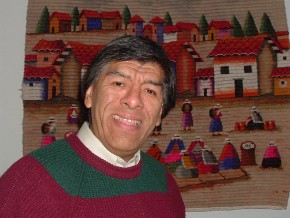Shut up and learn

At a meeting of ecumenical leaders working on church planting and evangelism, I noticed that the room collectively leaned in and listened carefully whenever the moderator spoke. He was Ruben Duran, the program director for new congregations in the Evangelical Lutheran Church in America.
Under Duran’s leadership, the ELCA has started an impressive array of worshiping communities in homes and bars and on the streets and in train stations. These communities have found different entry points into conversations with their neighbors, gathering around ecological issues, or concerns about paycheck lending, or the need for day care. The Denver area alone has eight new ELCA communities, and nationally 352 new communities are being developed.
The burgeoning ministries are ethnically diverse. Though the ELCA has strong ties to people of European ancestry—especially Norwegians, Swedes, Germans, and Finns—Duran reports that people of color lead 56 percent of the new communities. Instead of reflecting the established denomination, these communities look like the neighborhoods in which they are planted.




